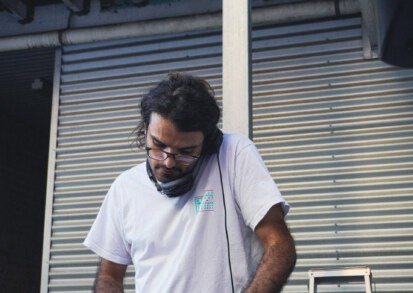The Japanese word shokunin is often translated as “craftsperson,” but it means more than just skill—it implies deep commitment, precision, humility, and a quiet responsibility to serve others through one’s work.
Shokunin isn’t just about what you make—it’s about how you live. And perhaps most importantly, it’s about how your devotion to your craft can contribute to something larger: freedom, joy, and connection.

A Lesson in Awareness (Hold the Soy Sauce)
I recently served as artist liaison for the legendary DJ KOCO AKA SHIMOKITA during his show at Felons Barrel Hall in Brisbane. While KOCO’s set was an impeccable show of mastery, it was his tour manager Yasushi (aka Sushi) who quietly opened my heart.
His patience, kindness, and insight made me step back and reflect on our relationship with culture. KOCO didn’t speak much English—and he didn’t have to. His work spoke for itself.
As artist liaison, I was there to guide them through the precinct and make sure they had everything they needed to feel comfortable. But in the end, it was Sushi who guided me.
The story began with a bottle of soy sauce.
At dinner, we ordered prawn and lobster dumplings. Instinctively, I reached for the soy sauce. Sushi, sitting beside me, leaned over and gently said, “Try first.”
A wave of embarrassment hit. Of course he was right. Lobster has a delicate flavour, and the dumpling was topped with caviar. Dousing it in sauce would’ve drowned the nuance. I tried it plain—and instantly tasted the prawn and the lobster flavours, first as separate, then as one.
He pointed at the caviar still perched on my half-eaten dumpling and nodded: “Definitely don’t need the sauce.”
Paradoxically, adding soy sauce would have reduced the complexity and nuance in the flavours.
Don’t EQ the Truth Out of It
Earlier that night at soundcheck, we’d adjusted the EQ on the booth monitors to tame some harshness. Sushi suggested, “Leave it flat. We want to hear it all.”
Some records will be bass-heavy. Others won’t. Some will sound dusty, others pristine. That’s the point: the character, the imperfections, the emotion—they live in the details.
Later, someone approached the front of house desk asking for more bass. Sushi patiently explained: more bass doesn’t mean better sound.
The ghost of déjà vu appeared, gently tapping me on the shoulder.

pictured: sushi (left) assists Koco (right) in packing down following the final track
Freedom Is the Flavour
Sushi used to work for major record labels in New York. At one point, he interviewed the late David Mancuso of The Loft—a legendary, invite-only “rent party” where alcohol was not sold (everything was free after entry) and the music moved people toward collective transcendence. These parties became refuge for minorities escaping persecution. Mancuso’s ethos toward sound was rooted in care for others.
“Mancuso required that the music played had to be soulful, rhythmic, and impart words of hope, redemption, or pride.”
— Bill Brewster
When I asked what made the Loft sound so special, Sushi mentioned speaker placement, the room, the floor. Loudness was never prioritised over quality. Extra tweeters were installed to increase clarity and detail. Mancuso’s sound system layout set the standard for club audio however ultimately it was everything that contributed: the environment, the energy, the lyrics, the sequence of records—the story they told.
“Music has the potential to transform the life energy of the listener… to carry them closer to the beauty, complexity, interconnectedness, dynamism and vibrancy of the universe.”
— Tim Lawrence on David Mancuso
At one point during KOCO’s set, he played Robin S – Show Me Love. I didn’t expect it. I don’t think the hip-hop crate diggers in the crowd did either.
People weren’t just staring at the decks, watching KOCO juggle beats—they were dancing with each other. We’d reached the point where the music became a medium of freedom. KOCO was simply rocking the party.

Mastery as Freedom
We often think freedom and discipline pull in opposite directions. But in truth, it’s discipline that makes real freedom possible. The shokunin spirit reveals that mastery leads to freedom—a freedom that can be shared.
Spending time with KOCO and Sushi showed me something deeper:
Real freedom comes from deep dedication.
From knowing your tools, your craft, your story—so well that you can let go.
So well that you can improvise, adapt and connect with others.
That’s what shokunin mastery looks like. It’s not flashy. It’s humble.
It’s felt in the way the dumpling doesn’t need sauce.
In the way the bass doesn’t need boosting.
In the way music makes people dance—not because it’s loud, but because it’s true.
Sushi’s restraint—whether with soy sauce or with EQ settings—wasn’t just about minimalism. It was the clarity of someone who’s walked the long road of mastery. Someone who knows that when you’ve put in the work, you don’t need to cover things up.
The message was clear: bass alone doesn’t unlock feeling. Soy sauce doesn’t make every bite better. Short-term pleasure doesn’t equal freedom.
That kind of care—where every small choice is intentional—is the hallmark of a shokunin.
He wasn’t adjusting for taste. He was honouring the material, the source. Not dominating it—just letting it speak.
This wasn’t just about technical choices. It was a philosophy. A way of relating to the world—and to others.
“You can never get enough of something that almost works.”
That quote—often used to describe addiction—came to mind. Whether it’s EQ settings or condiments, more isn’t always better. Especially when it masks what’s already beautiful.

The Pathway Isn’t Purity
We mustn’t get caught in the purity of our beliefs either. That kind of rigidity creates distance—between us and the world, and between each other.
You know the type:
“Vinyl is the only true format.”
“Phones ruin the dance floor.”
“Things were better back in the day.”
These stances may be rooted in care, but when they harden, they become walls.
They restrict us. And ultimately, they divide us.
By the way, Sushi wasn’t against soy sauce. He said “maybe a little bit”.

Lightness, Joy, and the Spirit of Play
At 2am, Sushi was hungry. The corner store near the venue was shut, so I offered to drive him to the 24/7 supermarket in Kangaroo Point.
In the cereal aisle, he stopped and exclaimed with glee, “Oh! Yes! Kellogg’s!”—delighted by the joy of exploring a supermarket in a foreign land and the joy of discovery.
He then showed me his phone wallpaper: the Froot Loops toucan.
I laughed with joy. He grabbed two boxes for his suitcase. “I have room in my suitcase” he said.
There was something deeply human and wholesome in that moment. Here’s this guy who clearly understands the rules of the game—but doesn’t take it all too seriously.
The spirit of play, curiosity and wonder well and truely alive in this man.
I found this inspiring. It felt like this was an example of a sustainable way of being.
So why are we here?
Why Goodhood?
We called it Goodhood as a response to this question:
What does a healthy, supportive place for producers feel like?
A place where feedback is shared.
Where mastery isn’t a carrot on a stick to sell something.
Where you can post your work, interact, and support each other.
That’s what good neighbours do.
Share good deeds and water each others seeds.
Immense gratitude to KOCO and Sushi for showing me the way.
Arigato
You can check out KOCOs latest 45 here:





Leave a comment
Login with Discord
Login with Discord